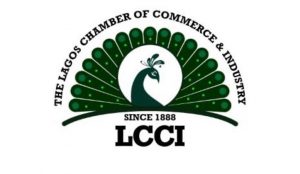Joy Agwunobi
The Lagos Chamber of Commerce and Industry (LCCI) recently hosted Jumoke Oduwole, the minister of industry, trade, and investment, for a high-level discussion on trade and investment challenges in Nigeria.
The engagement addressed critical concerns such as policy inconsistency, trade facilitation bottlenecks, infrastructure deficits, and limited access to finance all of which significantly impacted the ease of doing business in the country.
In a statement signed by Chinyere Almona, director-general of LCCI, the Chamber stressed that frequent policy reversals undermine investor confidence and make long-term business planning difficult. It also highlighted the challenges posed by cumbersome trade processes, which increase operational costs and slow the movement of goods and services.
Additionally, infrastructural gaps particularly in transportation, power supply, and digital connectivity remain a major obstacle to economic growth.
While acknowledging these concerns, Almona noted that the minister reaffirmed the federal government’s commitment to tackling them. She assured LCCI that ongoing policy reforms aim to enhance trade facilitation, attract investment, and create a more predictable business environment. Efforts are also underway to improve infrastructure and expand financing opportunities, particularly for small and medium enterprises (SMEs), to boost their competitiveness.
Following the discussions, the Chamber expressed optimism about the government’s plans, particularly in the following areas:
-
Inter-ministerial collaboration: The Ministry of Industry, Trade, and Investment proposed to collaborate with other government institutions like the Ministry of Communication and Digital Economy, the Federal Ministry of Health and Social Welfare, and the Federal Ministry of Art, Culture, Tourism, and Creative Economy to deepen the country’s GDP and broaden its productive base.
-
The Ministry is working with several sectors in the capital market to deepen the market and ensure that investment is focused on the real and productive sectors of the economy.
-
Regarding trade policy, the Ministry will focus on operationalising the AfCFTA and ensuring our free trade zones (FTZ) and manufacturers are competitive and enabled to export into the region and across the world with a focus on agriculture, manufacturing, etc.
According to Almona, the ministry’s recently released outlook suggests that current reforms will be sustained, with a strong emphasis on empowering the non-oil sector and expanding market access for Nigerian exporters.
“We look forward to tangible actions that will drive sustainable economic growth and improve Nigeria’s trade and investment landscape. The Chamber remains committed to engaging stakeholders and advocating for policies that foster a more business-friendly environment, ensuring Nigeria’s position as a key economic hub in Africa,” Almona stated.








